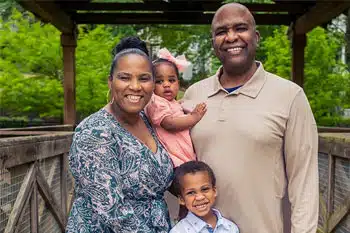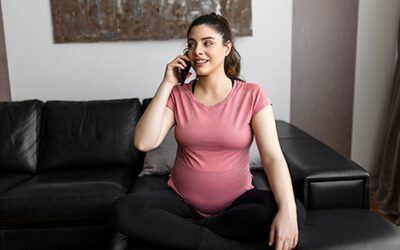When a couple is dealing with infertility, there are generally five stages of grief and loss that they go through. Encountering these emotions is a normal and healthy way of moving from infertility toward adoption.
We all deal with grief and loss in different ways. Some people experience all five stages, while others only encounter a couple. Furthermore, it’s normal to experience the stages in any order.
As a couple moves from the grief of infertility to adoption, they may experience these stages of grief and loss:
Stage 1: Denial
In this stage, the couple is in shock and can’t understand the possibility of them not having children biologically. So, they’re not yet processing their feelings of loss and continue to seek biological methods of having children.
Stage 2: Anger
People often get angry because of their infertility throughout the grief and loss process. Their anger may reveal itself in a variety of ways, including jealousy, fear, shame, guilt, or resentment. This anger might be directed at the source of the fertility issues, whether it is themselves or even their spouse.
Stage 3: Bargaining
In stage three, the couple does all they can to get pregnant. Their efforts might include eating certain foods, taking a variety of medications and vitamins, endeavoring infertility treatments many times, changing their lifestyles, or even starting the adoption process because they think it’ll help them get pregnant. With that said, a couple shouldn’t seek adoption unless they can fully devote themselves to the process.
Stage 4: Sadness
Many couples have shared that they feel not only emotional pain, but also physical pain during stage four. They may face physical complaints like low energy, aches and pains all over, and sleep disturbances. These negative emotions are actually a big step in their grieving process because it means that they are moving past the loss healthily.
Stage 5: Acceptance
The stage of acceptance is reached once a couple processes their emotions regarding the loss and fully accepts their infertility. Couples at this stage might see infertility as a time that was challenging and emotionally difficult, but that no longer consumes them. They start to regard adoption as a solution to become parents, not a solution to their infertility. They’re excited to pursue this next phase together and recognize they aren’t “settling” for adoption.
It’s important to have reached the acceptance stage before pursuing adoption. If you need help to move on from infertility and get excited about growing your family through adoption, you might seek the help of an infertility or grief and loss specialist. Make sure you consider all your options and decide if adoption is right for you after infertility.
Lifetime Adoption is here to help educate you about adoption and help you overcome some of your uncertainty about the adoption process.
Contact us today at 1-800-923-6784 to learn how to get started towards building your family through the joy of adoption!
Founder of Lifetime Adoption, adoptive mom, adoption expert, and Certified Open Adoption Practitioner (C.O.A.P).
Since 1986, adoption expert Mardie Caldwell has been dedicated to bringing couples and birth parents together in order to fulfill their dreams.
“Many years ago, I was also searching for a child to adopt. We didn’t know where or how to get started. Through research, determination, and a prayer, our dream of a family became reality. I started with a plan, a notebook, assistance from a caring adoption consultant and a lot of hard work; this was my family I was building. We had a few heartaches along the way, but the pain of not having children was worse!
Within weeks we had three different birth mothers choose us. We were overwhelmed and delighted. Many unsettling events would take place before our adoption would be finalized, many months later. Little did I know that God was training and aligning me for the adoption work I now do today. It is my goal to share with our families the methods and plans which succeed and do not succeed. I believe adoption should be affordable and can be a wonderful “pregnancy” for the adoptive couple.
I have also been on both sides of infertility with the loss of seven pregnancies and then conceiving by new technology, giving birth to a healthy daughter. I have experienced first-hand the emotional pain of infertility and believe my experience allows me to serve your needs better.
It is my hope that for you, the prospective parents, your desire for a child will be fulfilled soon.”






0 Comments